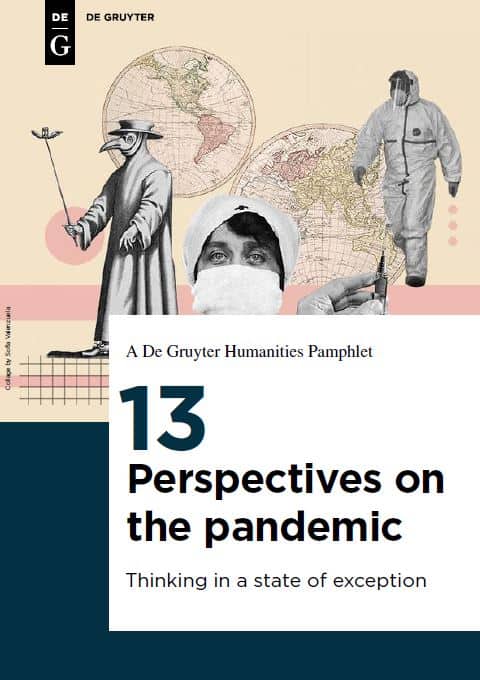Injustice in the Era of Covid-19
In the Covid-19 crisis, misfortune becomes injustice, as inaction makes governments passively unjust. Political philosopher Judith Shklar helps us to understand why the line between “natural” and “human-made” crises is highly artificial.
This essay was first published in the free digital pamphlet 13 Perspectives on
the Pandemic: Thinking in a state of exception.
Natural disasters are never simply natural. The climate crisis is the most obvious example: as humans continue to blast CO2 into the atmosphere, acidify the oceans, and bury nuclear waste, their impact will leave a permanent mark in the geological record for millennia to come. The Anthropocene — as the age of human intervention in nature has come to be called — shows how the line between what is natural and what is human is moveable and all but rigid.
But even a natural disaster such as the Covid crisis is not simply natural. It, too, is more than an external event that has just befallen us, even if the virus may not be human-made. What it shares with the climate crisis is that it is a highly political event. Humans have not created the virus — although global travel patterns have facilitated its spread — but the way societies react to its impact moves it from the realm of mere facticity into that of justice and injustice.
Misfortune and Injustice
No one analyzed this better than the political philosopher Judith N. Shklar (1928–1992). In her book The Faces of Injustice (1990) she insists that the line between misfortune and injustice, too, is moveable throughout history. Depending on the technological and institutional development of a society, what was simply a misfortune a hundred years ago can turn into an injustice when the response to it is possible but inadequate or when the disaster could have been prevented in the first place.
The injustices Shklar identifies in this way are not necessarily the result of active measures. More often, they follow from complacency, unpreparedness, and neglect, frequently aided by political ideologies that foster such inaction. When that happens, she speaks of “passive injustice.” A passive injustice is an event that results from an act, or more often a failure to act, that not does not conform with the expectations we can plausibly have toward governmental agents in a modern, liberal democracy: to be sheltered from disaster, or to be aided once it strikes.
In the Covid crisis, such passive injustices can be identified everywhere. They begin with downplaying the dangers of SARS-CoV-2 or flatly denying its existence. They continue with a slow response to the outbreak as well as a sloppy execution of life-saving measures. As Shklar puts it, when nothing is done where something could be done, we are faced with a passive injustice. However, at the highest level, even the structure of government and society itself can be considered with the concept of passive injustice: if a country rich enough to institute it denies its citizens healthcare, or forces them to expose themselves to danger lest they lose their job or their home, a passive injustice is committed that goes to the very heart of a society.
A “Liberalism of Fear”
Shklar’s notion of passive injustice is driven by what she calls a “Liberalism of Fear.” Not interested in highest goals, such as a specific idea of the good life, or an overarching ideology society should enact, Shklar is instead concerned with the conditions of freedom — with the circumstances that need to be in place to have every individual design out their own concept of the good life. Such a liberalism is negative and strives to avoid a highest evil: cruelty and fear, and that includes the fear of, or the secondary consequences of, a health crisis.
Consequences
“The concept of passive injustice, undergirded by a liberalism of fear, gives us a measure at hand to assess how the crisis has been handled.”
The Covid pandemic shows that such a seemingly negativistic program has powerful consequences. Fear and cruelty are on our minds once more, and the role of the state to prevent them or to lessen their impact has become apparent again. The concept of passive injustice, undergirded by a liberalism of fear, gives us a measure at hand to assess how the crisis has been handled. It also allows us to formulate a vision for a society that would have mitigated its effects in the first place by looking at the primary and secondary prerequisites of freedom — the prerequisites that need to be in place to live without fear and cruelty.
The Covid pandemic also shows that the already existing conditions of injustice are heightened in crises, be they seemingly natural, like Covid, or systemic, like the cyclical economic breakdowns that so often, too, are described in the language of natural disasters. Shklar opens our eyes to the fact that there are no real natural disasters, and that each invites passive injustice from the lowest to the highest level. For the time after Covid, we would be well advised to heed Shklar’s analyses.
Learn more in this related title from De Gruyter
[Title image via Getty Images]
